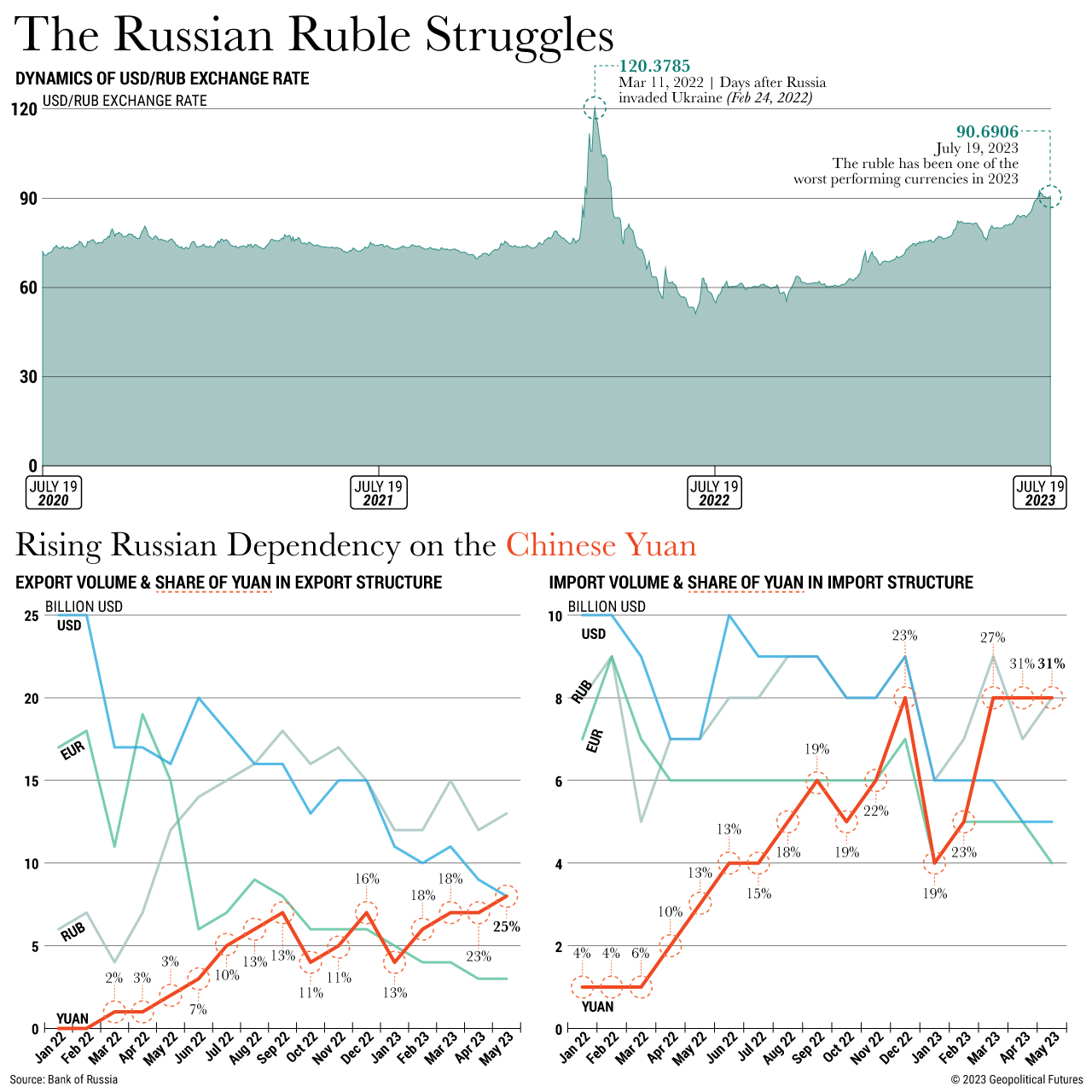Amid mounting sanctions on the Russian financial sector, Moscow has limited avenues of interacting with the global financial system, especially in terms of access to major traded currencies. After Russia’s February 2022 invasion of Ukraine, numerous Russian banks were disconnected from the SWIFT international financial messaging system, adding complications for Russian companies transacting in dollars or euros. Despite these hurdles, Russia has not only managed to sustain its foreign trade but also increased the usage of its national currency, the ruble. As of May 2023, the ruble accounted for 49.8 percent and 36.3 percent of payments for exports to Europe and Asia, respectively. The surge in the ruble’s usage owes much to the adoption of ruble-denominated payments for Russian natural gas supplies, which continue to flow to both European and Asian markets. Russia’s reorientation of trade flows to the East has also spurred greater reliance on the yuan.
However, despite Russia’s successful adaptation in facilitating mutual settlements in international trade, the Russian ruble itself has struggled with volatility and weakness, primarily impacting consumers rather than the state. Facing a robust ruble last year, the Russian government set its sights on gradually weakening the currency to ensure optimal economic conditions. But several other factors have contributed to the ruble’s weakening, including the growing influence of the Chinese currency in mutual trade, fluctuations in the USD/RUB exchange rate, volatility in commodity prices and seasonal variations in Russia’s balance of payments surplus. Moreover, seasonal demand for currency from the population during summer holidays and foreign companies leaving the country have further depressed the ruble’s value. Coupled with uncertainties surrounding future sanctions packages, the Russian government must strike a difficult balance. An excessively weak ruble is detrimental to the Russian economy.





